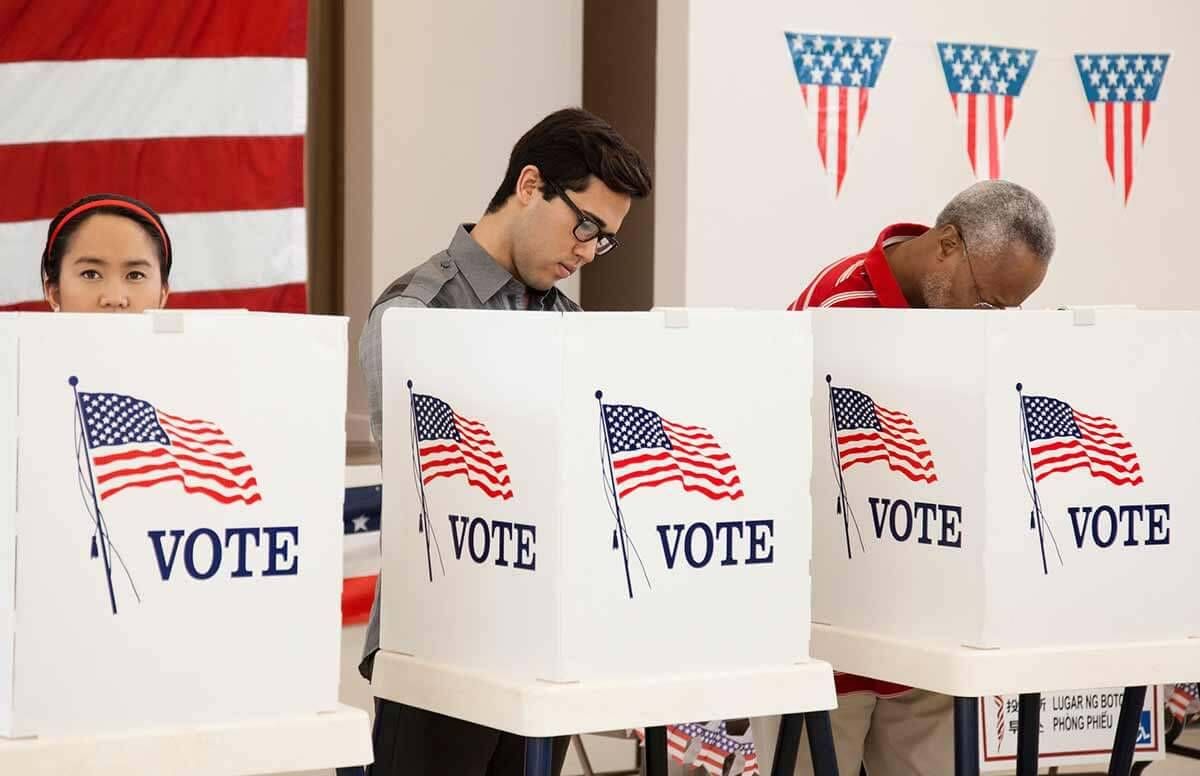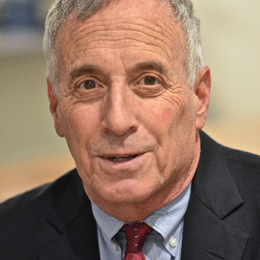Can Write-In Presidential Candidates Change Our Politics?
The answer from the Boston University economist who is one
(Boston University economics professor Laurence J. Kotlikoff is an independent write-in candidate for President.)

The Republican and Democratic parties are presenting the American public with two highly unpopular choices for President. Over three fifths of voters view Trump unfavorably and over half view Clinton unfavorably. Since fewer than 30 percent of the electorate voted in the primaries and only 14 percent wanted either Clinton or Trump, we have — to put it mildly — a lot of very unhappy campers.
3 Ways a Write-In Candidate Can Get on the Ballot
There are three ways other candidates can get on the ballot.
The first is to be nominated by a third party. But then the third party has to get on the ballot in 50 states, if it wants to run nationwide. This is no picnic, which is why only two other parties (the Libertarian and Green parties) have succeeded in the 2016 election. The Reform Party is another third party, but it's on the ballot in only a handful of states.
The second way is as an individual, independent candidate. This, too, is also extremely difficult — unless you have tens of millions of dollars to hire people to do the legwork. In New York State, for example, you need 15,000 signatures to get on the ballot. So, yes, a Michael Bloomberg, with a war chest, could make this happen. Few others could.
Presumably, this is why the press thinks that you need money, tons and tons of money, to become President if you aren't chosen by the Reds or the Blues. But this, actually, isn't true.
There is a third, and very inexpensive way to get on the ballot: It's called being a registered write-in candidate. That means your supporters physically put you on the ballot by simply writing in your name with four words, e.g., Rebecca Walker for President. (Writing in a Vice Presidential candidate takes five words, e.g., Daniel Patterson for Vice President.)
This third way is the way I'm running, as a registered write-in candidate. (Shameless plug: my website is Kotlikoff2016.com.) "Registered" means that votes for me (placed on the ballot by my supporters, not by a printing machine) and my running mate, UCLA economist, Edward Leamer, will be counted by the states that require registration.
Message to Write-In Candidates: Register Or Else
If you are Mickey Mouse and aren't registered in a state that requires registration, you might as well not run. The state won't count your votes. So you'll lose even if you win. There are also a handful of small states that won't count any write-in candidate's votes. Fortunately, they represent only 9 percent of the electors to the Electoral College. So they can't prevent a popular write-in candidate from being elected President.
The write-in registration process is very difficult, but not impossible especially given the Internet. Some states require you to sign up electors for each Congressional district and have their signatures notarized. Others will count your votes with no requirements. As a result, I believe that only five people will be legally able to be elected President on November 8 without fighting multiple court battles: Trump, Clinton, The Green Party’s Jill Stein, The Libertarian Party’s Gary Johnson and me. (Evan McMullin, the former CIA agent, who recently announced his non write-in candidacy for the President as an independent, seems to have entered too late to get on the ballot in more than half the states. )
Why Write-Ins Have Never Come Close to Winning
Write-in candidates have never come close to winning the presidency, probably because they have never been serious enough to do the hard work to become registered in the roughly half of the states requiring registration. Also, most reporters seem to think that a write-in candidate has no chance to win because none ever has. But reporters fail to distinguish between registered and unregistered write-in candidates.
If, to date, only write-in candidates who have failed to register across all (or almost all) states have run, the media has no basis to judge the chances of a registered write-in candidate.
The challenge for a registered write-in candidate is to let the public know he or she is running and why they should vote that candidate’s way in the space provided on the ballot or on the electronic ballot screen.
The Media and the Message
Social media is marvelous for presidential candidacies (and we are using it intensively). But traditional media provides credibility. In our case, traditional media — including Next Avenue — has been paying attention. Forbes, for instance, has invited me to debate the policies of Trump and Clinton on key domestic issues on Forbes.com. So far I’ve written columns there on Debating Taxes and Debating Health Care.
Will Ed Leamer and I get enough attention? Will traditional media spend the time to consider our strikingly different policy proposals? We're not sure. But as two economists with national and international reputations, we have a lot of capacity to make this happen. Yes, it would be far better were our names Brad Pitt and Matt Damon. But notable people can endorse our candidacy and, thanks to social media, change the odds overnight. We're banking on this happening.
If Not This Election, Then Soon
But here's the key point: If a registered write-in candidate doesn’t change politics this election, it will happen soon. And when it does, that will produce a sea change in American politics.
The public and the media will instantly understand that we are no longer beholden to the two parties to tell us who we can and can't elect as President — a practice you'd expect in China or Russia, not in the cradle of democracy.


